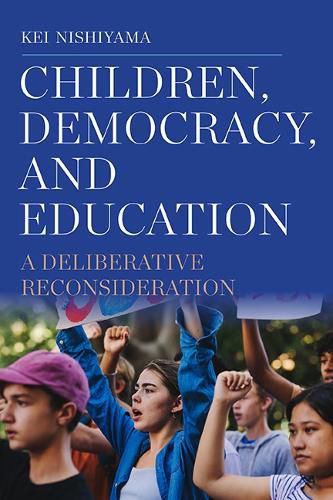Readings Newsletter
Become a Readings Member to make your shopping experience even easier.
Sign in or sign up for free!
You’re not far away from qualifying for FREE standard shipping within Australia
You’ve qualified for FREE standard shipping within Australia
The cart is loading…






Looks at the present norms and practices of a new form of democratic education and children's democratic participation, utilizing both theoretical and empirical examination of children's deliberative agency.
How children participate in democracy has shifted toward more communicative, networked, and creative models than before. In political science and political theory, however, surprisingly little is understood about what if anything children can contribute to democracy and how they would do so. Traditionally, children have been considered as mere future citizens who are acknowledged only when they behave in accordance with adults' expectations. In this sense, children are one of the last frontiers of democratic inclusion, as they have long been seen and not heard. Children, Democracy, and Education critically examines and proposes how to counteract such a traditional view on children and retheorizes their position and role within contemporary democracy. Utilizing the empirically grounded concept of deliberative democratic learning, Kei Nishiyama then argues how we enable children's communicative participation and development in classrooms, schools, and social movements to expand the inclusive quality of democracy.
$9.00 standard shipping within Australia
FREE standard shipping within Australia for orders over $100.00
Express & International shipping calculated at checkout
Stock availability can be subject to change without notice. We recommend calling the shop or contacting our online team to check availability of low stock items. Please see our Shopping Online page for more details.
Looks at the present norms and practices of a new form of democratic education and children's democratic participation, utilizing both theoretical and empirical examination of children's deliberative agency.
How children participate in democracy has shifted toward more communicative, networked, and creative models than before. In political science and political theory, however, surprisingly little is understood about what if anything children can contribute to democracy and how they would do so. Traditionally, children have been considered as mere future citizens who are acknowledged only when they behave in accordance with adults' expectations. In this sense, children are one of the last frontiers of democratic inclusion, as they have long been seen and not heard. Children, Democracy, and Education critically examines and proposes how to counteract such a traditional view on children and retheorizes their position and role within contemporary democracy. Utilizing the empirically grounded concept of deliberative democratic learning, Kei Nishiyama then argues how we enable children's communicative participation and development in classrooms, schools, and social movements to expand the inclusive quality of democracy.